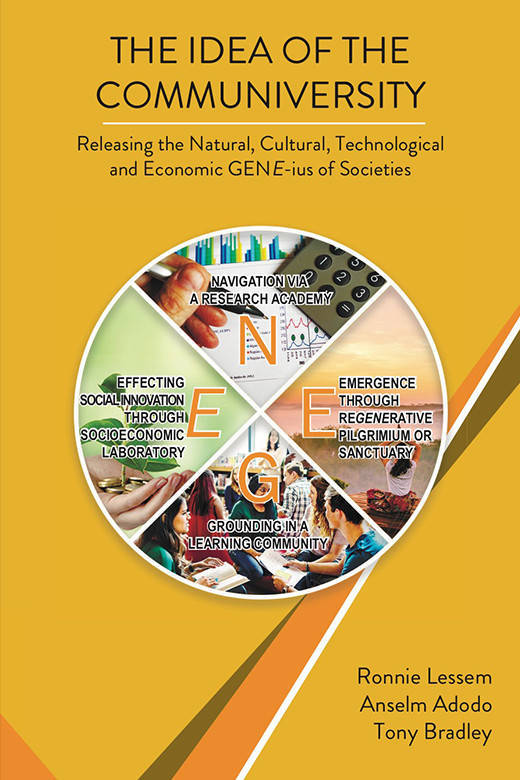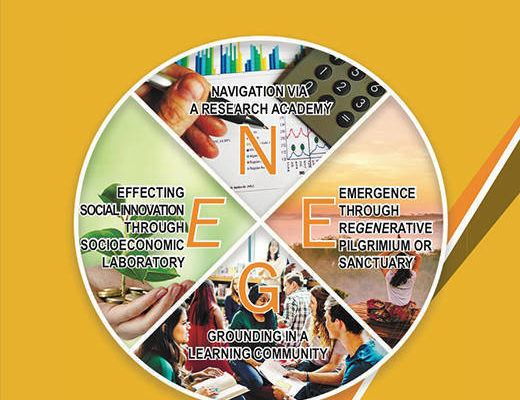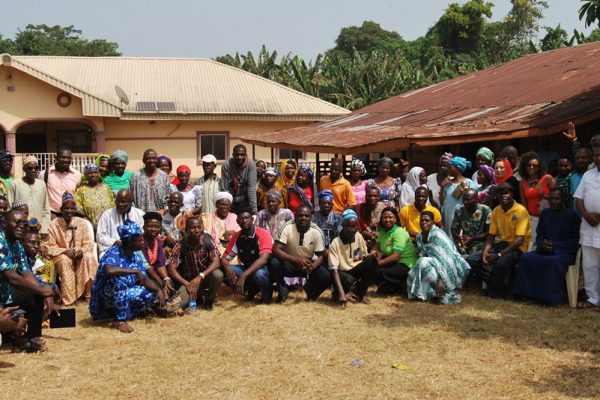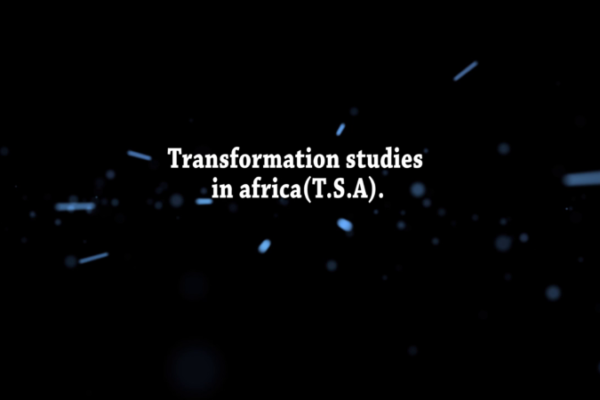ABOUT THE BOOK
Across the world, we are facing a crisis in education at all levels: for some communities, schooling remains inaccessible, and for others, educational institutions have become elite qualification factories. For most, the cost of higher education is rising. Underlying these profound challenges are fundamental questions about the nature of universities and higher education in general.
What kind of knowledge do we need to survive in the present century and next? Do the current modes of knowledge creation and application address the challenges of the 21st century? How do we bridge the dichotomy between being and knowing, research and innovation, theory and practice? Perhaps for the first time, a group of scholars—a veteran Afro-European political philosopher, a Catholic cleric and social scientist, and an Anglican priest/political economist—have taken a step further and asked: is it possible to re-imagine and re-invent the global university system?
In The Idea of the Communiversity, they propose a new approach to the economic, social, technological, educational and moral transformation of society. This book takes an integral world’s approach to societal transformation, by pointing to ways in which we can reform our modes of knowledge creation. Through the fourfold model of community, pilgrimium, academy and co-laboratory, Lessem, Adodo and Bradley—all intellectual and grassroots activists—have re-conceptualised a university for every people and culture, centred on the need to think local and act global. We have seen the eras of post-colonialism and decoloniality. This book ushers us into a new one—that of the Communiversity.
ABOUT THE AUTHORS

PRAISE FOR THE BOOK FROM ACROSS THE DIFFERENT WORLDS
FROM THE SOUTHERN WORLD
‘The ‘‘Communiversity” idea is timely. It challenges the dominance of the conventional University. What is even more exciting and appropriate is the fact that this birth is being presided over by Africans, alongside significant others around the world, representing the authentic natural grounding critical for knowledge creation and societal renewal altogether. The Comuniversity is clearly an answer to a distraught world in which the conventional University has failed to provide solutions. For me, “University” speaks of individualism and selfishness leading to destructive detachment from reality, whereas “Communiversity” speaks of community and teamwork leading to inclusive, transformative development. The time for the Communiversity has indeed arrived!’
Douglas Mbowane, CEO, Econet Wireless, Harare, Zimbabwe.
——————————————————————————————————————–
‘The Idea of the Communiversity’ is at the frontier of the decolonisation project in Africa and the global South. It is a long-awaited book that makes it clear that it is possible to decolonise knowledge production by reconnecting the sites where knowledge is produced (universities) and the sites where it is applied or practiced (community). Written by eminent African-oriented scholars, the book provides a clear answer to people who are seeking answers to the question: What does the decolonisation of knowledge and the curriculum entail? This is a must read for any person (student, researcher, activist, teacher, professional, politician), interested in learning about the practical implications of transforming the African university and beyond. The book carries a revolutionary seed for changing the way we produce and validate knowledge.’
Horman Chitonge, Associate Professor at the Centre for African Studies, University of Cape Town, South Africa, and author of Economic Growth and Development in Africa: Understanding Trends and Prospects.
—————————————————————————————————————-
‘The very concept of ‘communiversity’ demonstrates that there are thinkers among us who are rising to the current global systemic and epistemic crisis, characterised not only by uncertainties of knowledge but by the very idea of a university being questioned and universities turning into the key site of struggles. ‘The Idea of the Communiversity’ is a welcome contribution, which transcends seeking to know the world of knowledge and its politics but, courageously and innovatively, offers a way in which to change it. I have nothing but praise for this important book.’
Professor Sabelo J. Ndlovu-Gatsheni, author of Epistemic Freedom in Africa: Deprovincialization and Decolonization. Head of Change Unit, University of South Africa, Pretoria.
—————————————————————————————————————
‘The sheer audacity and intellectual confidence to think outside the box and initiate an alternative approach to education and development, as demonstrated in this book, is commendable. Kudos to our own Fr Adodo and his counterparts across the world. As a responsible government, we cannot afford not to listen to these voices of reason.’
Godwin Obaseki
Executive Governor, Edo State, Nigeria.
————————————————————————————————————–
‘This book is timely. It comes at a time when scholars are in search of the Model University that would be more relevant to the social and economic needs of the 21st century. The need to forge a union between industry and academe, community and economy and revamp the spiritual and moral foundation of society cannot be more pressing than now. The world needs a university model that can reconcile it with nature, community and the environment. I applaud the vision behind the book.’
Professor Ben. E. Aigbokhan, Vice-Chancellor, Samuel Adegboyega University, Ogwa, Nigeria.
———————————————————————————————————————-
‘This book is an invitation to reconnect with the healing power of nature: a spiritual, psychological, cultural and technological Renaissance. Theology, Medicine, Law, Technology and the Liberal Arts constitute important issues in the communiversity and related institutions-an era of the social laboratory. The authors clearly expended great energy, enthusiasm, efforts and patience to produce this work.’
Professor Abiodun Falodun, Rector, Edo State Polytechnic, Nigeria.
——————————————————————————————————————-
‘A masterpiece. Daring to think differently. A profound work of impeccable scholarship.’
Professor Oluwatoyin Ogundipe, Vice-Chancellor, University of Lagos, Nigeria.
——————————————————————————————————————
FROM THE EASTERN WORLD
‘The Idea of the Communiversity’ is a compelling and enlightening read. It is a genuine effort to reap the fruit of integral knowledge. By reinventing terms for this knowledge, the authors are able to coin an authentic definition of learning, where the roots of meaning evolve from communities. Communiversities are live organisms that stem and grow in their unique soils of origin.’
Senator Haifa Hajjar Najjar, Jordanian Senate House: The Upper House of Jordanian Parliament. ———————————————————————————————————————
‘As ‘humanity’ seems to be less and less of a commodity in our workplaces and societies, it is prime time to return human consciousness and a sense of belonging in the world. The Idea of the Communiversity offers a new path – an integral approach to learning and being that is rooted in one’s self and community, while embracing global knowledge and enterprise to make a genuine difference in the world we live in.’
Dr Hassib Sahyoun, Founder and CEO, Medlabs Jordan.
——————————————————————————————————————-
‘An intellectually stimulating book. It challenges the conventional Eurocentric narrative and puts forth an alternative development approach, nesting together often undermined forces of the community, local knowledge and spirituality – combined, they present a new paradigm of inclusive development. A unique effort – like a breath of fresh air.’
Dr Amjad Saqib, the Founder of Integral Finance (Akhuwat), Pakistan.
FROM THE NORTHERN WORLD
‘A truly inspiring text that proposes a visionary and unique approach to community, culture and academia in changing socio-economic times. The idea of communiversities challenges historic practice and embraces our current local culture with a new mindset and in a new way.’
David E. Jenkins, CEO – The Old Courts Arts & Heritage Trust, Wigan, UK.
————————————————————————————————————————
‘Ronnie Lessem is always worth listening to. He challenges the normal and inspires the extraordinary. This book could change your life and our world.’
Dame Jayne-Anne Gadhia, ex CEO, Virgin Money, Founder of the Gadhia Group, UK.
———————————————————————————————————————
‘The authors argue the urgency of re-situating knowledge/learning communities in historical time and diversity of culture and place. They recall the complex genealogy of Western knowledge institutions (library, monastery and academy, through medieval Republic of Letters, to modern university and laboratory): they insist on the interplay of oral and written forms of knowledge; and on the links between learning, reconciliation, healing and human community. And then, politely, on the challenge to “subvert the epistemological scaffolding” that underpins current Western hegemony (and its discontents) — developing through world examples the proposition that “in the present moment, it is the global south that affords privileged insight into the workings of the world at large”. They show that the time has arrived for the resurgence of an intellectual ‘appropriate technology’.’
Professor Martin O’Connor, Professor of Economics, Université Paris-Saclay, France.
—————————————————————————————————————–
‘From social innovators in local communities to top leaders of our societies, from rural communities to academia, we urgently need the change of perspective elaborated in this book. In order to release the GENE-ius of Self-Organisation-Community-Society – including Economy – the paradigm shift that these authors advocate includes overcoming the over-emphasis of “Western” and “Northern” perspectives in knowledge creation and sharing. Learning rooted in nature and community, as well as culture and spirituality, are indispensable elements of the “communiversity”. The communiversity idea will effectively promote the knowledge-and-institutional transformation needed to address the burning issues of our time.’
Dr Darja Piciga, founder of the Citizens’ Initiative for Integral Green Slovenia.
——————————————————————————————————————-
FROM THE WESTERN WORLD
‘In this path-breaking book, Lessem, Adodo and Bradley call for a novel re-conception of the modern techno-centric university. In place of the hierarchical and individualistic university, these scholars propose an institution that is spiritual in purpose, that is communitarian in orientation, and that seeks the transformation of the individual and her society. They call this reimagining of the university a “communiversity” and view it as a combination of a community of scholars, engaged in a transformative journey (pilgrimium), that is both an inclusive academy and a functional laboratory. This book is a call to action for educators and activists to create an institution that can work to change concrete societal problems.’
Professor Kenneth B. Nunn, Professor of Law, University of Florida, USA.
—————————————————————————————————————–
‘In ‘The Idea of the Communiversity’, Lessem, Adodo and Bradley guide us on an epic journey toward reimagining knowledge creation and its application for the purpose of bringing integral transformation to a world in desperate need. Drawing on the historic roots of knowledge creation and transmission, the authors propose a newly integral “Communiversity” as an alternative to the now moribund traditional university construct, where one’s size is supposed to fit all learners. In a world rife with endemic challenges without solutions, the Communiversity’s core elements of Community, Pilgrimium, Academy, and Laboratory offer new hope for the challenges our world faces, by excavating long neglected indigenous knowledge sources that can lead to innovative solutions both local and global. The time has come for the Communiversity!’
Dr Sam Rima teaches at Bethel University, Minnesota, USA. He is author of Spiritual Capital: A Moral Core for Social and Economic Justice.
You buy this book online from Paxyou website by clicking on the buy now button below
Buy This Book Now







Comments(7)-

-

-

-

-

-

-

Adodo Blessing Deborah says
May 21, 2019 at 8:20 pmYou always motivate and inspire me. You’re my father, uncle and mentor. You are unique in your own ways. I derive knowledge from each of your efforts, more power to your elbow sir, keep up the good work and may God continue to empower you in all you do ijn,Amen
Sr Esther Olusi DHS says
May 22, 2019 at 12:36 pmThe ideas of communiversity is on point timely. The book is highly recommended for anyone who want to bridge the gap between the local and foreign insight, between teaching and learning where theoretical solution can be translated to practical actions. I say kudos to Fr Adodo and his team. May God’s wisdom continue to lead you everyday so that the work of evangelization you lay your hands upon will yield a GOOD fruit. More strength Fr.
Merriment Sammy says
May 23, 2019 at 6:30 amYour write up is always inspirational such that one looks up for the next book. Keep doing your good work of educating and transforming lives. More grace
Merriment Sammy says
May 23, 2019 at 6:35 amYou bring new ideas to our notice everyday. Always on point. A must read for everyone irrespective of status or social class.
Chiamaka says
May 23, 2019 at 7:00 amCOMMUNIVERSITY! combination of community and university affirms that community is not and should not be just a place where people dwell in but also a university where individual or group of person should be engaged in making use of what is available to get the unavailable through concrete transformation and innovation thereby improving both the communities economy and the inhabitants. CONGRATULATIONS FR.
Victor Umaru says
May 25, 2019 at 6:40 amThe Idea of Comuniversity, is a perfect expression of our struggle as a continent to find our own answers to the issues of sustainable development especially as education is the foundation of such an expected end.This is a pro active and pragmatic step in the right direction. My prayer is that by this work African educational institutions will re-evaluate there curriculum and as stated by Fr.Adodo begin to look at African research to innovation with African eyes. Thank you sir and God bless you!
Benson Igboin says
June 26, 2019 at 8:12 pmThis book ruptures the existing Enlightenment rationality that confines knowledge facts so defined, ousting the mystical from the realm of reality. That the book is coming from both African and Western intellectuals is instructive. It is a challenge to look back as a elder to know what, where, why, how we have fallen as humans, and why nature may take sweet revenge if we ignore it.